JAKARTA, Indonesia — Indonesia’s parliament postponed the ratification of controversial changes to the country’s election laws on Thursday as thousands of protesters occupied roads in front of the legislative building and some attempted to breach its perimeter.
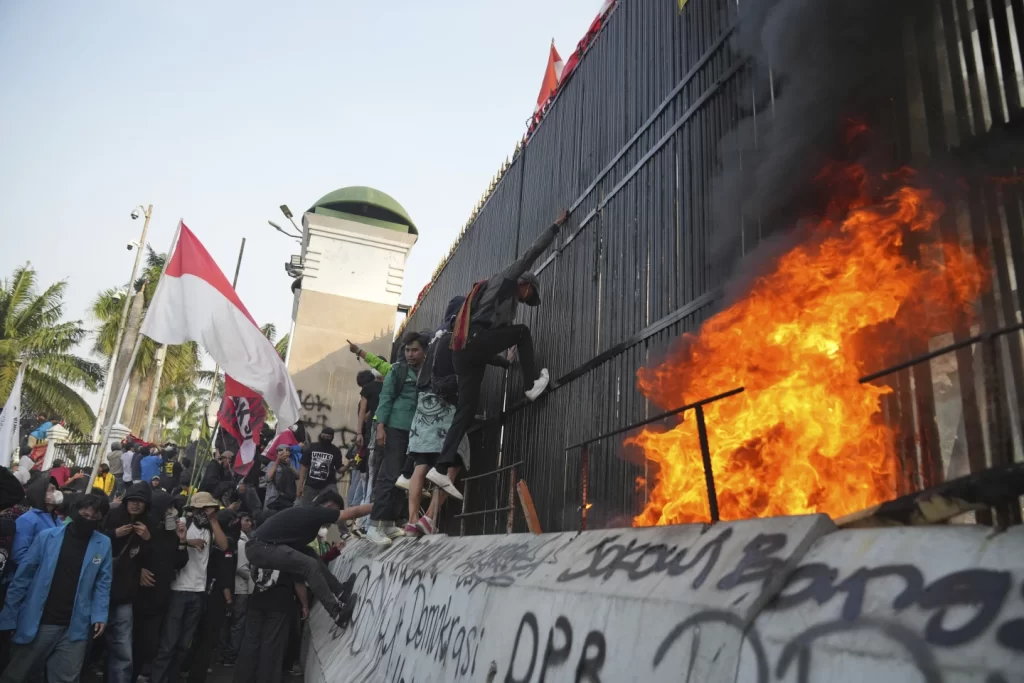
The proposed changes, criticized for potentially deepening the political influence of outgoing President Joko Widodo and weakening Indonesia’s democracy, prompted an emergency parliamentary session. The legislature aimed to overturn one decision made by Indonesia’s Constitutional Court on election procedures while amending another.
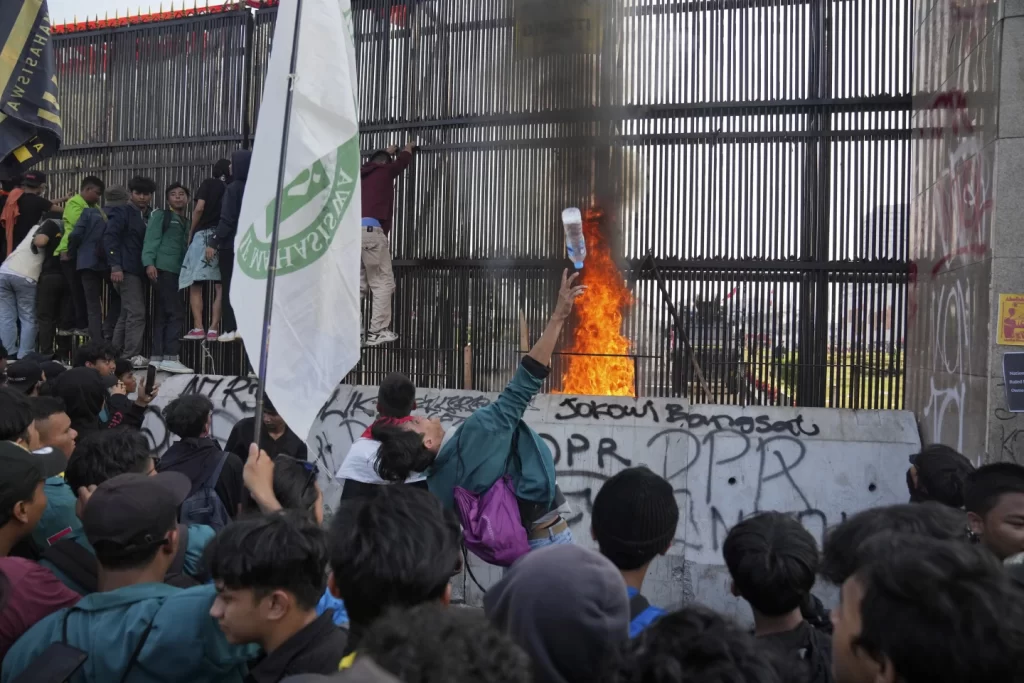
Deputy Speaker Sufmi Dasco Ahmad announced the cancellation of the ratification, stating, “It was stated that the revision of the regional election law cannot be implemented. This means that today the revision of the regional election law will not be implemented.”
The decision came after the parliament failed to achieve a quorum amid the escalating protests outside.

Indonesian police deployed tear gas and water cannons to disperse protesters who had torn down a section of fence and thrown rocks at law enforcement. Demonstrators occupied roads in front of the parliament building, with some holding banners and signs while others set fires and burned tires.
The Constitutional Court on Tuesday dismissed a challenge to an age limit preventing individuals under thirty from running for regional governorships. This ruling would bar President Widodo’s youngest son, Kaesang Pangarep, twenty-nine, from contesting a regional election in Central Java.
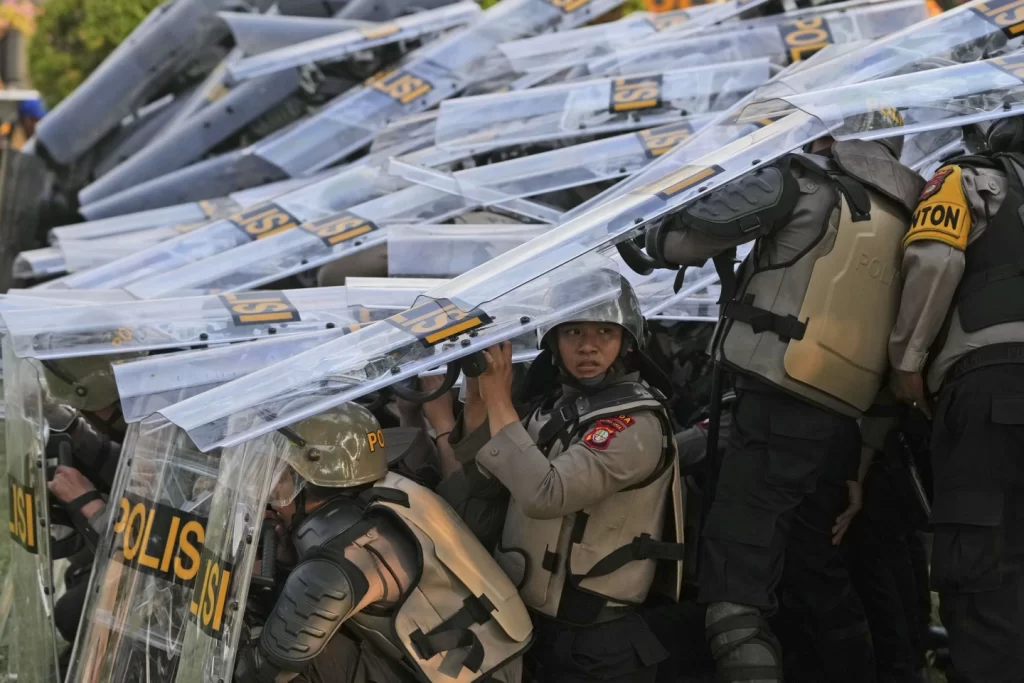
The court also eased nomination requirements for political parties, reducing the threshold of local legislature seats needed to nominate candidates.
In response, parliament on Wednesday passed an emergency motion to change the minimum age for governors to thirty at the time of inauguration and further ease nomination requirements. The legislature had planned to ratify these changes in Thursday’s plenary session before the protests intervened.
The proposed changes triggered widespread condemnation on social media and raised concerns about a potential constitutional crisis.
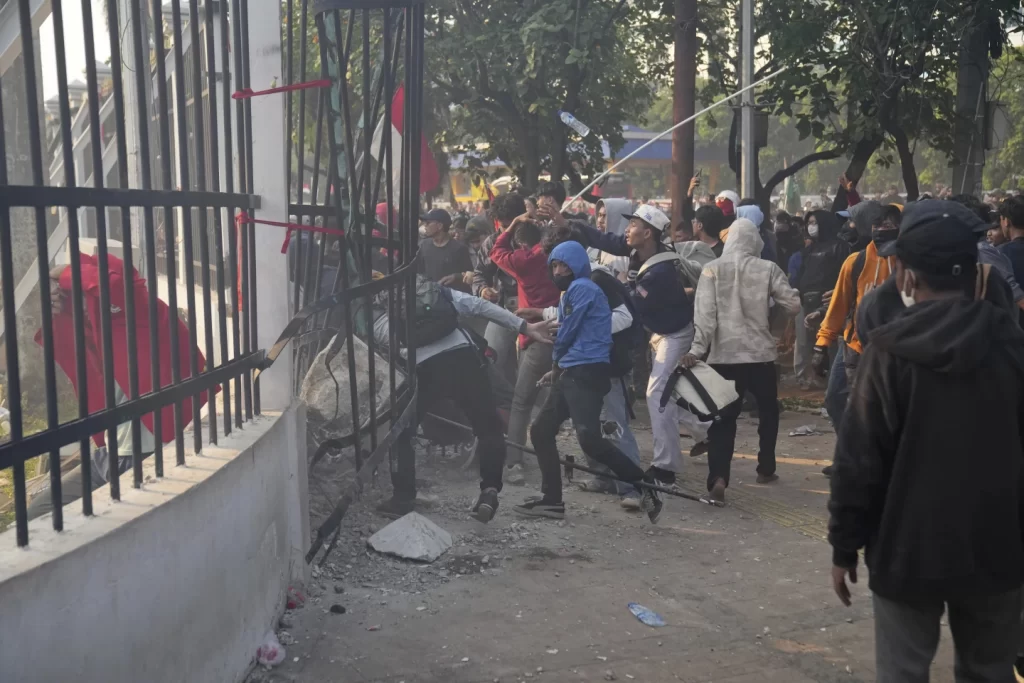
President Widodo, popularly known as Jokowi, is serving his second and final five-year term, which ends in October. His eldest son, Gibran Rakabuming Raka, is the incoming vice president following a separate Constitutional Court decision that created an age exception for former regional leaders. That ruling was made while Widodo’s brother-in-law, Anwar Usman, was serving as chief justice. Usman was later dismissed for participating in a case involving a close relative.
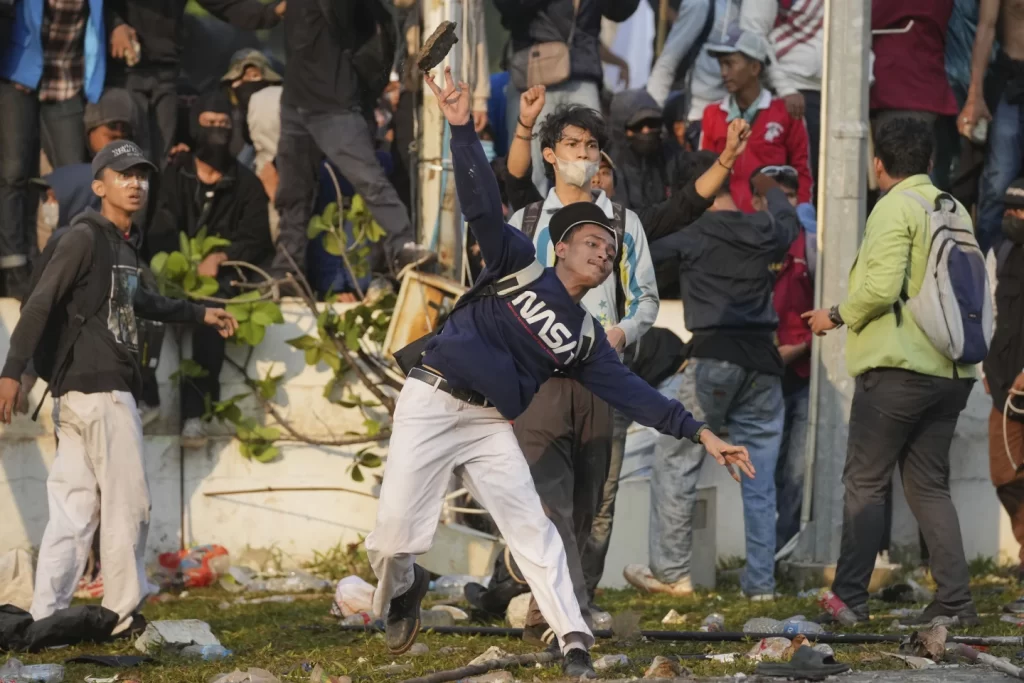
Protests were reported in several major Indonesian cities, including Bandung, Yogyakarta, Surabaya, and Makassar. In Yogyakarta, at least one thousand protesters rallied, demanding the rejection of the regional election bill, respect for the Constitutional Court’s ruling, and opposition to political dynasties.
Yoes Kenawas, a political analyst at Atma Jaya Catholic University, noted that the simultaneous protests in major cities demonstrated anger at parliament’s efforts to overrule the Constitutional Court decision. “They also opposed the dynastic politics carried out by President Jokowi,” Kenawas added.

The protests have brought together activists, students, workers, and public figures, all voicing concerns about the state of democracy in Indonesia.
As the situation develops, observers are closely watching for any further legislative attempts to modify election laws and the potential impact on Indonesia’s democratic processes.



